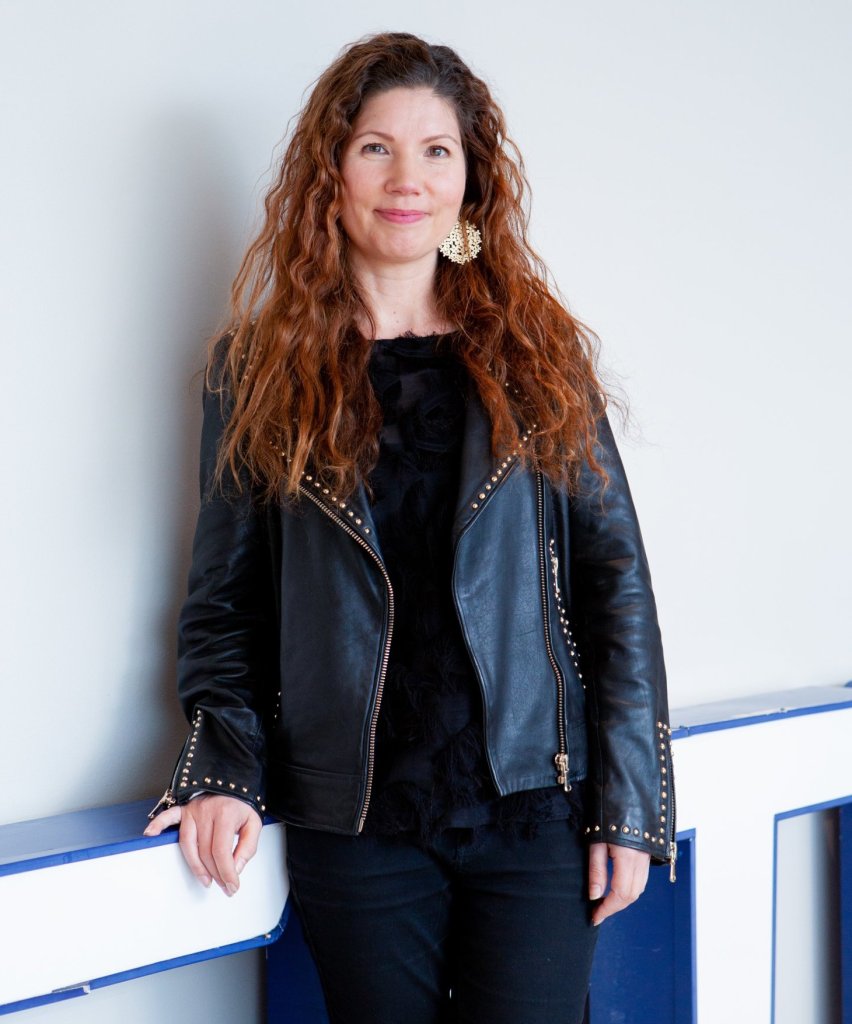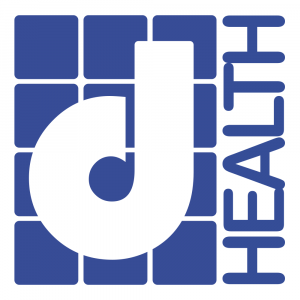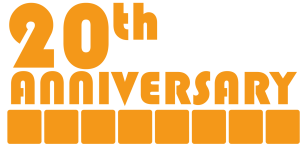Tuesday (May 12), Day 1
09:00 – 10:30
Track 1 – Room Nr. 1![]()
KI – Wunderwaffe gegen den demografischen Wandel in der Medizin?
Österreichische Ärztekammer
Track 2 – Room Nr. 9![]()
Smart FOX, Health Data Donation for Research
Medical University of Vienna & AIT Austrian Institute of Technology
T. Stamm, K. Donsa
eHealth Strategie - Barometer
Umsetzung der eHealth-Strategie Österreich im Rahmen der Zielsteuerung
Die von den Systempartnern Bund, Länder, Sozialversicherung gemeinsam erarbeitete und beschlossene eHealth-Strategie Österreich ist der strategische Rahmen für die Digitalisierung im Gesundheitswesen. Die Strategie definiert die Vorhaben für die Umsetzung für die kommenden Jahre. Jetzt geht es darum, dass einerseits auf Länderebene die Vorhaben entsprechend umgesetzt werden und anderseits braucht es ein Monitoring zur Messung.
Moderatoren:
| Bernadette Matiz, MAS Stabsstellenleiterin Öffentlichkeitsarbeit & Digitalisierung, Gesundheitsfonds Steiermark |
|
| MMag. Dr. Andreas Huber Zielsteuerungskoordinator; Institutsvorstand LIV Tirol |
Vorträge:
| Andreas Huber Landesinstitute für integrierte Versorgung Tirol Bernadette Matiz |
Angabe folgt. |
| Christoph Hörhan Hörhan Strategy Consultants GmbH |
Zauberformel eHealth. (10 min, Partnerbeitrag) |
| Alexander Kollmann Land Salzburg; Gesundheitsplanung und landeseigene Versorgungseinrichtungen |
Angabe folgt. |
| Michael Felli Stadt Wien |
Angabe folgt. |
| Anja Laschkolnig Gesundheit Österreich GmbH |
Angabe folgt. |
Track 3 – Room Nr. 8![]()
Scientific Session #1 - T.B.D.
Chairs:
T.B.D.
Scientific Session #1
AI, LLMs and Digital Twins
Chairs: Jan Smeddinck, Ágnes Vathy-Fogarassy
Presentations:
- Enhancing Malignancy Detection and Tumor Classification in Pathology Reports: A Comparative Evaluation of Large Language Models
Sabrina B. NEURURER, Hasan TAHA, Helmut MUEHLBOECK, Christoph HICKMANN, Patricia GSCHEIDLINGER, Stefan RICHTER, Martin DANLER, Werner O. HACKL, Marko UEBEREGGER, Marco SCHWEITZER and Bernhard PFEIFER - Development of a Synthetic Oncology Pathology Dataset for Large Language Model Evaluation in Medical Text Classification
Werner O. HACKL, Sabrina B. NEURURER, Stefan RICHTER, Hasan TAHA, Helmut MUEHLBOECK, Christoph HICKMANN, Patricia GSCHEIDLINGER, Martin DANLER, Marco SCHWEITZER, Marko UEBEREGGER and Bernhard PFEIFER - LLM-Driven Adjustments in Serious Games: A Feasibility Analysis
Ivana MOSTACHETTI, Andrea VITALI, Daniele REGAZZONI, Caterina RIZZI and Giovanni Pietro SALVI - Exploring the Potential of Non-Proprietary Language Models for Analysing Patient-Reported Experiences
Kerstin DENECKE - Acceptance and Usage of AI Applications in Health-Focused NGOs
Franziska HAUER, Maximilian SCHULTZ, Sonja HAUG and Karsten WEBER - From Concept to Practice: Unlocking the Potential of Digital Twins in Clinical Engineering
Jasmina LOZANOVIC and Maja PETROVIC
Tuesday (May 12), Day 1
10:30 – 11:00
Coffee Break
Tuesday (May 12), Day 1
11:00 – 12:30
Opening Session
Opening address
Opening Keynote
Opening Keynote
European Health Data Space – catalysing digital health innovation
Speaker:

Elina Drakvik
Senior Lead,
Sitra
Bio:
Elina Drakvik works as a Senior Lead at Sitra, the Finnish Innovation Fund, and its Future Wellbeing Solutions Programme. She leads the joint action on the secondary use of health data, TEHDAS2, which supports the implementation of the European Health Data Space (EHDS) Regulation. Driving digital health, innovations and impact in cooperation with international partners and ecosystems as well as creation of new collaboration opportunities are at the core of her work. Prior to joining Sitra she has led various European multistakeholder projects and gathered experience in research funding, societal impact and innovations from Karolinska Institutet and Stockholm University in Sweden as well as Research Council of Finland. She will showcase the lessons learned from Finland’s experiences in secondary use of health data and shed light on the developments around European Health Data Space in the context of the TEHDAS2 Joint Action.
Tuesday (May 12), Day 1
12:30 – 13:30
Lunch Break
Tuesday (May 12), Day 1
13:30 – 15:00
Track 1 – Room Nr. 1![]()
ELGA News
ELGA GmbH
S. Sabutsch
Track 2 – Room Nr. 9![]()
Digitale Souveränität & Digital Health
AUVA & KAGes
T. Mück, M. Pedevilla
Track 3 – Room Nr. 8![]()
Scientific Session #2 - T.B.D.
Chairs:
T.B.D.
Tuesday (May 12), Day 1
15:00 – 15:15
Coffee Break
Tuesday (May 12), Day 1
15:15 – 16:45
Track 1 – Room Nr. 1![]()
Entscheidungs-unterstützung & KI im Kontext von Gesundheitsportalen
Wiener Gesundheitsverbund
M. Binder
Track 2 – Room Nr. 9![]()
Real-World-Data & Interoperability
Charité Berlin & FH Technikum Wien
S. Thun, S. Sauermann
Track 3 – Room Nr. 8![]()
Scientific Session #3 - T.B.D.
Chairs:
T.B.D.
Tuesday (May 12), Day 1
16:45 – 17:00
Coffee Break
Tuesday (May 12), Day 1
17:00 – 18:30
Plenary Session
Chairs: T.B.D.
Keynote 2
Call for Visions 2036 & Roundtable to reflect
Tuesday (May 12), Day 1
18:30 – 19:00
Change of Venue
Tuesday (May 12), Day 1
19:00 – 22:30
Networking Event
Networking Event
Relaxed get-together after Day 1
Location: 10er Marie (Ottakringer Straße 222-224, 1160 Vienna)
The networking event is the perfect opportunity to get to know the conference attendees in a relaxed setting after a long and intensive day of presentations, workshops and information. This event is at an authentic and traditional kind of Austrian restaurant (called “Heuriger”). This is your chance to talk to everyone, have a glass of wine, eat delicious traditional meals (e.g. schnitzel, pork roast, sauerkraut, …) and recharge for the next day. Do not miss it, this is generally considered one of the highlights! Here is an impression from a past conference:

Please note: You have to additionally register for this networking event. This is not included in the normal registration fee and not done automatically when registering for the conference.
There will be a free organised transport from the conference venue to the restaurant. Transportation back home afterwards to your accomodation is done individually.
All information can be found here: FAQs
Looking forward to seeing you there!
Day 2
Wednesday, May 13th, 2026
Wednesday (May 13), Day 2
08:45– 10:15
Track 1 – Room Nr. 1![]()
Cyber- & Information Security in Healthcare
BMSGPK
R. Scharinger
Track 2 – Room Nr. 9![]()
EHDS - HealthData@AT
Gesundheit Österreich GmbH
A. Degelsegger-Márquez
Track 3 – Room Nr. 8![]()
Scientific Session #4 - T.B.D.
Chairs:
T.B.D.
Wednesday (May 13), Day 2
10:15- 11:00
![]()
![]()
Coffee Break & Scientific Session #5: Poster Session
Scientific Session #5
Poster Session
Posters:
- Adherence to Guidelines Supported by Process Mining
Klaus ARTHOFER - A SMART on FHIR Conformant Infrastructure for Recording Patient Reported Outcomes Based on Open-Source Components
Yannick KÖRBER, Florian KATSCH, Tanja STAMM and Georg DUFTSCHMID - Identifying Caregiver Needs for EHR Functionalities: Insights from a Comprehensive Large Scale Nationwide Study
Daniela PICHLER, René BARANYI and Thomas GRECHENIG - Standardizing Heat-Related Diagnoses for Predictive Modeling in Healthcare
Jakob THIEL, Martin SEDLMAYR and Elisa HENKE - Climate Change, Vectors, and Public Health: Predicting Future Disease Risks in the Federal State Tyrol
Alexandra SCHWAIGER, Sabrina NEURURER, Werner O. HACKL, Hasan TAHA, Marco SCHWEITZER, Martin DANLER and Bernhard PFEIFER - Design of a Decision Support System for Chronic Pain Management to Support and Empower Nursing Professionals
Daiana Denisa DEMARCSEK, Barbara KRÖBER, Stefanie SCHRIEBL, Stephanie FREYDL, Bernhard NEUMAYER, Angela LIBISELLER, Philip STAMPER and Stefan HOCHWARTER - Requirements for an Instrument to Identify Context Factors for Enhancing Context Sensitivity in CDSS
Katharina SCHULER, Ian-C. JUNG, Maria ZERLIK, Martin SEDLMAYR and Brita SEDLMAYR - Virtual Reality with Moodle for Training in Telemedicine
Andrea CATTANEO, Anna SAVODELLI, Amin AMROUSSI, Maria Sofia CAVALLO, Debora PESENTI, Maria RAGAZZI, Cristian ROTA and Andrea VITALI - cMOOC Recommendations to Enhance AI Literacy Among Healthcare Professionals
Bianca BUCHGRABER-SCHNALZER, Marco TILLI, Rupert BEINHAUER, Waltraud JELINEK-KRICKL, Raphaele RAAB, Klaus LICHTENEGGER, Michael HAMMER, Gernot REISHOFER and Helmut RITSCHL - Integration of Digital Tools into Clinical Reasoning Education: A Rapid Review
Elske AMMENWERTH and Laura ZWAN - Nursing Informatics Education: Needs Analysis and Curriculum Design
Elske AMMENWERTH, Hadas LEWY, Walter DE CARO and Vered ROBINZON - Real-Time Communication Infrastructure for Mixed Reality in Home Care: A Comparative Case Report of Three Approaches
Cornelia SCHNEIDER, Philipp KOLMANN and Philipp RAMEDER - Shared Achievements: Exploring the Design of Gameful Collaborative Elements and Fostering Social Relatedness through Team Effort Contributions in a Social Physical Activity Application
Faith YOUNG, Dmitry ALEXANDROVSKY, Daniela WURHOFER, Eva-Maria KRAH and Jan D. SMEDDINCK - Active Waiting: Facilitating Short Bouts of Exercise During Idle Times for Promoting Physical Activity in Daily Living
Daniela WURHOFER, Magdelena MAISLINGER, Eva-Maria KRAH, Stefan T. KULNIK, Gunnar TREFF, Michael NEUDORFER, Faith YOUNG and Josef NIEBAUER - Evaluation of the “ActiveWaiting App”: A Waitlist-Control Pilot Study
Andrea GREISBERGER, Daniela WURHOFER, Alireza FATEHI, Jan David SMEDDNICK and Stefan Tino KULNIK - Mobile Health Technology in Physiotherapy and Occupational Therapy for People with Multiple Sclerosis: An Exploratory Field Study
Stefan Tino KULNIK, Belinda BÖHM, Isabel HÖPPCHEN, Antonia LINDNER, Lisa SEIRINGER, Daniela WURHOFER, Ferdinand OTTO and Peter WIPFLER - Using a Logic Model to Explore Seniors' Interactions with a Coaching Robot
Michelle BINDEL, Markus SCHWAIGER, Elske AMMENWERTH and Cornelia SCHNEIDER - A Learning Agent for Stress Multi-Level Diagnostics, Personalised Stress Profiles and Interventions in the Work Context
Oliver JUNG, Mathias SCHMOIGL-TONIS, Christoph SCHRANZ, Beatrix Julia KUNAS, Anton-Rupert LAIREITER, Julian MEHLIS and Michael BEER - Application of Micro Design Patterns in Co-Design Workshops Using PROM Visualizations as an Example
Maria ZERLIK, Ian-C. JUNG, Katharina SCHULER and Caroline GLATHE - Empowering Nursing Care Through Digital Innovation
Renate NANTSCHEV, Eva ZOEBINGER, Angela LIBISELLER, Mirna BAN, Denise WILFLING and Katharina LICHTENEGGER
Wednesday (May 13), Day 2
11:00 – 12:30
Track 1 – Room Nr. 1![]()
AI in der praktischen Anwendung
Gesundheit Burgenland
F. Öller
Track 2 – Room Nr. 9![]()
Health Data Research Hubs
AIT Austrian Institute of Technology
K. Kreiner
Track 3 – Room Nr. 8![]()
Scientific Session #6 - T.B.D.
Chairs:
T.B.D.
Wednesday (May 13), Day 2
12:30 – 13:30
Lunch Break
Wednesday (May 13), Day 2
13:30 – 15:00
Track 1 – Room Nr. 1![]()
COPD & Digital Health
UMIT Tirol
B. Tilg
Track 2 – Room Nr. 9![]()
Digital Health Startups
LISAVienna & HTS
P. Hainzl, M. Pichler
Track 3 – Room Nr. 8![]()
Scientific Session #7 - T.B.D.
Chairs:
T.B.D.
Wednesday (May 13), Day 2
15:00 – 15:15
Coffee Break
Wednesday (May 13), Day 2
15:15 – 16:00
Closing Session 
Chairs: T.B.D.
Award Ceremony
Closing Keynote
Conference Closing

